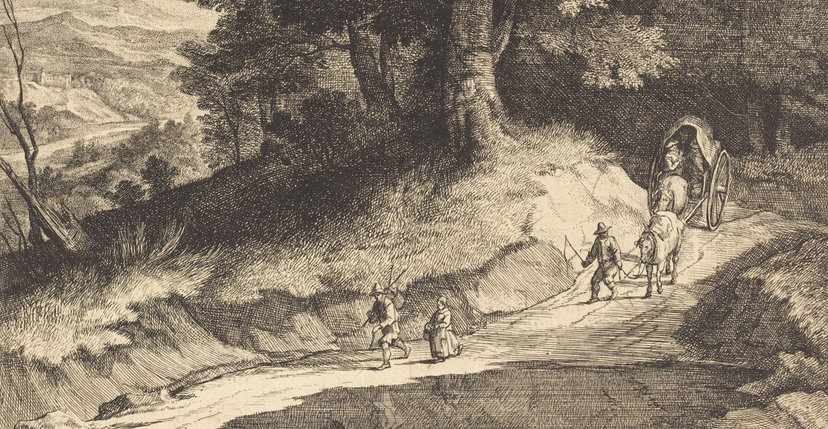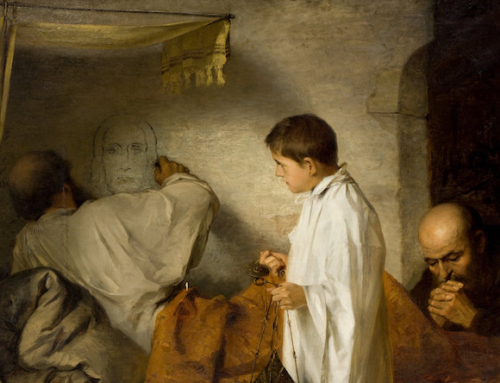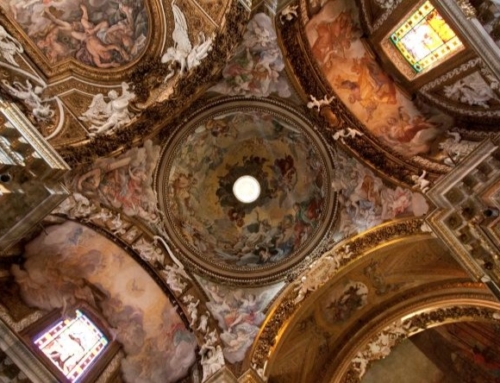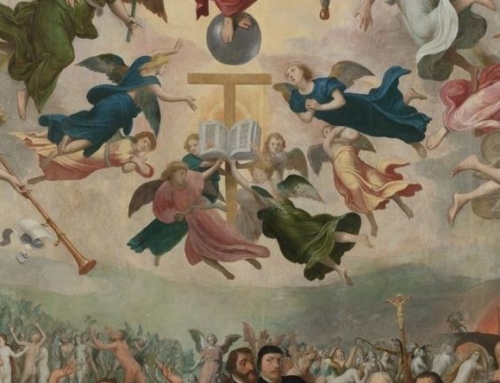“Home is where the heart is” and “life is a journey” are familiar sayings, too familiar to carry profound meaning for most of us. But they do connect to a Christian tradition almost as old as the Church itself. This tradition understands the Christian as homo viator on the way to life in patria. “Viator” comes from the Latin word for road, via, and means a wayfarer or traveler. The “patria” is the fatherland or homeland that the traveler is returning to from being abroad.
The Fathers of the Church, especially St. Augustine, used this analogy extensively. It became such a part of the tradition that, in medieval theology, life this side of Heaven was simply called in via and life in Heaven in patria. The theme has also featured in some of the greatest works of Christian literature, such as Dante’s Divine Comedy and Bunyan’s Pilgrim’s Progress.
The essential feature of this analogy is the longing to be home. Home is the place of belonging, of comfort, of love, of knowing and being known, of sharing life together. The road is a place of loneliness, of alienation from the surroundings, of constant labor. At least, this is true if the traveler has a good home, if he would rather be there than anywhere else. A young man or woman seeking his or her fortune may not be quick to return home, but a husband away from his wife and children will do anything to get back to them. Odysseus would not be deterred from returning to Ithaca, no matter how exciting his adventures at sea or alluring the homes of Circe and Calypso.
As a Christian grows in his faith, he goes from being at home in the world to longing for home in Heaven. When Jesus says in the Sermon on the Mount that “where your treasure is, there also will your heart be” (Mt 6:21), He is telling us to place our treasure and our hearts in Heaven. If our ambitions are limited to this life, our heart is still at home in the world. Every time we say the “Our Father,” we have the opportunity to exercise our faith in our identity as a son or daughter of God. We want to be at home with our heavenly Father, which can only happen partially in this life.
Placing our treasure in heaven requires us to use this world as a means to journey to Heaven, not as an end in itself. When St. Augustine explains his distinction between “using” things for the sake of God and “enjoying” God for His own sake, he uses the homo viator analogy. This is from his De doctrina christiana, or Christian Instruction:
If the pleasantness of the journey and the very movement of the vehicles were to delight us and turn us aside to enjoy the things which we ought, instead, merely to use, and were to confuse us by false pleasure, we would be unwilling to end our journey quickly and would be alienated from the land whose pleasantness would make us really happy. (I.4.4, Fathers of the Church vol. 4)
The absurd picture of enjoying the movement of the vehicles more than the destination helps us look anew at our own life. How do we use earthly possessions, pleasures, and positions? Are we living for the future and using our time now to store up treasure, or are we seeking a happiness in the moment that will always escape us, no matter how hard we try?
St. Katharine Drexel, a 20th-century saint from Pennsylvania, gives us a hopeful perspective on the usefulness of days spent in the service of God:
Out of our common todays and yesterdays we are building for eternity. No thought, no work of ours ever dies. We shall meet them all again, and in the world to come shall find our gathered harvest.
The moments of our lives slip past us like water through our fingers, but the love of God in our hearts is able to imbue them with a tinge of eternity. Using things with charity gives us an inheritance in Heaven, one we do not see now but which will be waiting for us when we arrive. Where our treasure is, there also will our heart be.
To conclude, let us take encouragement from another word of St. Augustine’s, one that the Church uses on the last day of the liturgical year in the Office of Readings:
So, then, my brothers, let us sing now, not in order to enjoy a life of leisure, but in order to lighten our labors. You should sing as wayfarers do—sing, but continue your journey. … If you make progress, you will be continuing your journey, but be sure that your progress is in virtue, true faith, and right living. Sing then—but keep going. (Sermon 256.3)
✠
Image: Jean Morin, Edge of a Wood with Travelers in a Carriage







